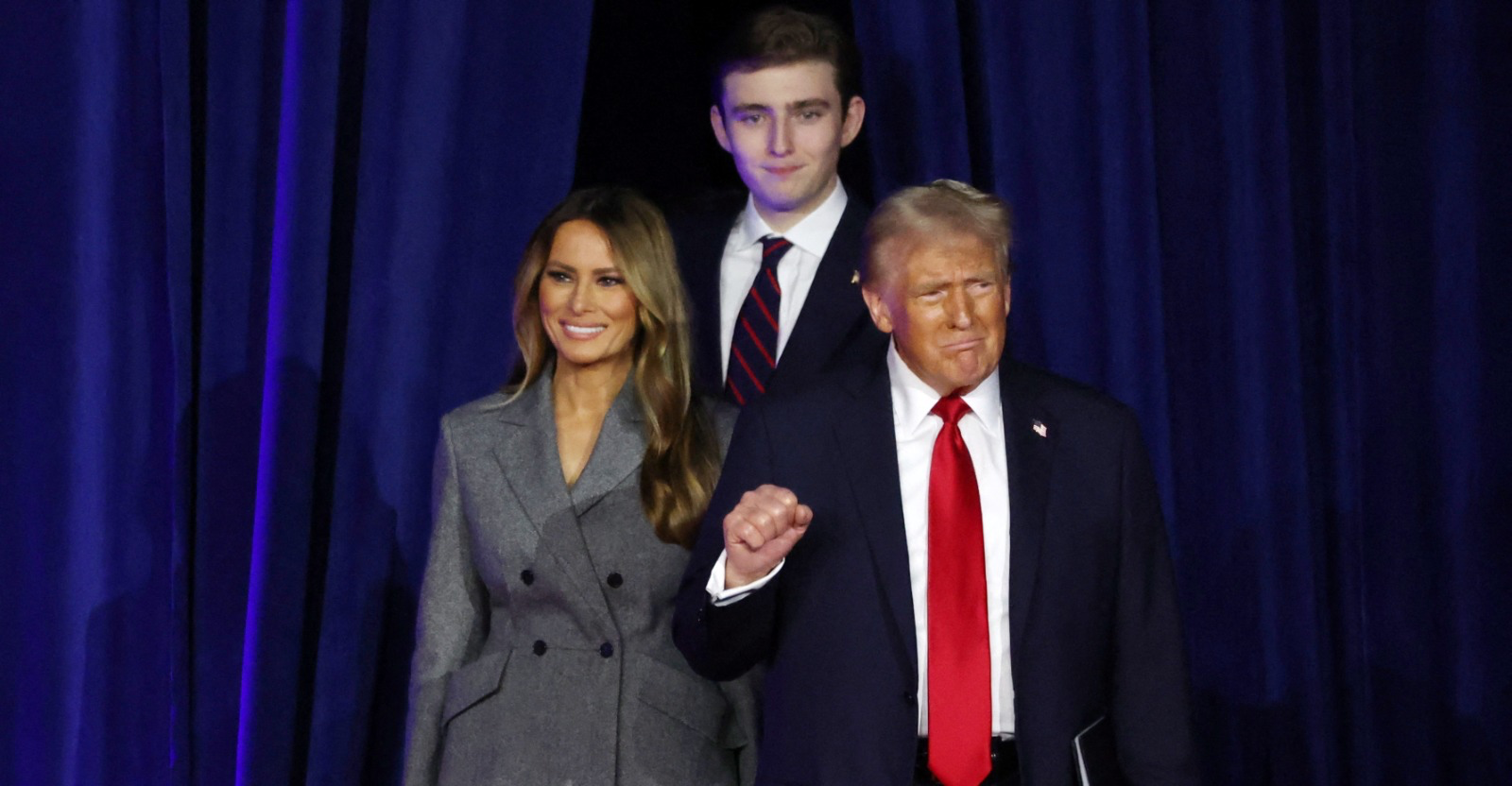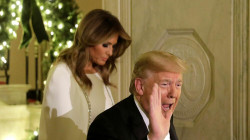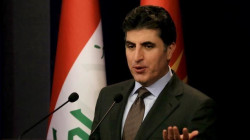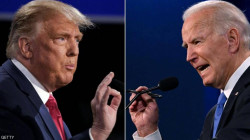Trump’s second term: A populist agenda with global impact

Shafaq News/ Republican Donald Trump's "historic victory" is taking shape, not only through his post-election statements following his win over Democrat Kamala Harris but also through his previous presidential term from 2017 to 2021. His tenure was defined by populism, the "America First" slogan, and a more pronounced "isolationism" in international relations.
US 2024 Election Results
The US election results showed a decisive win for Donald Trump in securing a second term, making him the first presidential candidate convicted of legal offenses to win the presidency. Trump claimed victory over Democratic candidate Kamala Harris, securing 295 electoral votes, surpassing the 270-vote threshold required to become the 47th president of the United States. This election cycle has also sparked, for the first time in years, significant concerns over potential civil unrest and strikes, as Trump’s populist rhetoric has successfully cast him as a victim of the system and the "deep state.”
Trump's "populist" traits emerged immediately in his first statements following his "unprecedented political victory," solidifying his position as the new US President. "We overcame obstacles that nobody thought possible, and it is now clear that we've achieved the most incredible political thing. Look what happened. Is this crazy?" Trump declared at his election headquarters in Florida. "Every single day, I will be fighting for you, and with every breath in my body, I will not rest until we have delivered the strong, safe, and prosperous America that our children deserve and that you deserve."
Trump further emphasized his vision, saying, "This will truly be the golden age of America. That's what we have to have… And now, it’s going to reach a new level of importance because we’re going to help our country heal. We have a country that needs help, and it needs help very badly. We’re going to fix our borders; we’re going to fix everything about our country. We made history for a reason tonight."
Closing his remarks, Trump added, "I hope that you're going to be looking back someday and say that was one of the truly important moments of my life when I voted for this group of people. Beyond the President - this group of great people."
“I’m Going To Stop Wars”
Trump's words could sum up much of the direction the next phase might take as he prepares to assume office in January. “I’m not going to start wars, I’m going to stop wars,” he stated, while House Republicans signaled their intent to move forward with an "America First" agenda. “We had no wars, for four years we had no wars. Except we defeated ISIS,” Trump added.
The new President has repeatedly used the Ukraine War and the Gaza War, which has heightened regional tensions, to criticize his Democratic opponents and diminish their support. In Ukraine, Joe Biden unlocked tens of billions of dollars from US financial reserves and arms stockpiles, placing Ukraine's needs above the US economy, infrastructure, and healthcare, sparking significant debate and discontent among voters over the past two years.
The Gaza War, reportedly funded by Biden at an estimated 70%, according to Western sources, and allegedly covering up what international organizations have described as "genocidal crimes" committed by Israel in retaliation to Hamas' assault over a year ago—resulting in the deaths of over 43,000, primarily women and children—has led to internal divisions within the Democratic Party. These fractures highlighted a split between the party’s traditional leaders and the younger generation, a demographic that has been a key electoral base for the Democrats.
Seizing this opportunity, Trump frequently conveyed that under his presidency, the Ukraine and Gaza wars would not have occurred, suggesting that Hamas would have refrained from attacking Israel, that he would have swiftly resolved the Ukraine conflict, that Iran would be deterred from challenging Israel, and that, if elected, he would bring an end to the Gaza war within days.
Kamala Harris’ defeat was “resounding,” with various voter groups casting their ballots less out of allegiance to Trump and more as a “punishment” of the Democrats. For instance, Michigan, which has a large Arab Middle Eastern community disillusioned with the Biden-Harris administration’s support for Israel’s actions in Gaza and Lebanon, granted over 74% of its votes to Democrats in 2020. However, recent figures showed Harris receiving around 48.3% of the vote, compared to Trump’s 49.8%—a stark contrast from the 24% he garnered in 2020.
This shift exemplified the scale of Democratic Party losses, further intensified by Biden’s at times “faltering” public appearances in press conferences and international summits, which have contributed to the decline in the party's image and the rise of Trump’s “populist” appeal.
Reducing the Military Role Abroad
If Trump’s pre-election statements align with his post-election actions, particularly his pledge to "end wars" and reduce America’s military role abroad to focus on internal security challenges and border protection from what he calls "criminal migrants," he may proceed with implementing the agreement reached between Iraqi Prime Minister Mohammed Shia Al-Sudani’s government and the Biden administration. This agreement includes a timetable to phase out the US-led Global Coalition’s mission, which could result in the withdrawal of American troops from Iraq, or at least a reduction in the current force of approximately 2,500 soldiers stationed there.
It remains uncertain if Trump’s position has shifted regarding the presence of around 900 US troops in Syria. Trump had repeatedly expressed doubt about the value of this mission, attempting previously to withdraw American forces from eastern Syria. This effort sparked substantial controversy among Washington policymakers, with some seeing the move as a “betrayal” of Kurdish allies who had fought alongside the US against ISIS.
As part of his campaign statements, Trump is likely to activate his foreign diplomacy to promote the "Abraham Accords" that Israel signed with the UAE, Bahrain, Sudan, and Morocco. Saudi Arabia, which was on the verge of joining the accords, has since reiterated its stance, stating there will be no normalization with Israel until the war is halted and a Palestinian state is established.
Trump's Populism
“Trump's populism is part of a broader global trend of rising populist leaders in recent years, resonating with large segments of the population who feel disillusioned with traditional political elites and negatively impacted by neoliberal policies,” analysts noted. This movement advocates for a return of power to the people or those who represent them more authentically, such as Trump, who has crafted a message that taps into public anxieties, perspectives, and a rejection of the status quo—both in politics and economics—while fostering distrust in state institutions and their credibility.
In this context, experts suggested that Trump embodies the "savior leader who, by fate, divine will, and the people's desire, confronts the corrupt elite.” However, Trump is not alone in this global shift. Other notable figures include right-wing leaders like Marine Le Pen of France, leftist Jean-Luc Mélenchon, Hungary's Viktor Orbán, the far-right Swedish Democrats, Italian Prime Minister Giorgia Meloni, Spain's Vox party, and others.
Positions of World Leaders
Trump’s victory carries potential global ramifications, especially if he continues his "America First" agenda, which during his previous term led him to withdraw from or disengage with several international agreements and organizations. This included reducing Washington’s role in supporting and funding NATO, causing global concern and uncertainty about its impact on international conflicts and the balance of power.
Israeli Prime Minister Benjamin Netanyahu, who has enjoyed steadfast support from the Biden-Harris administration, was one of the first to congratulate Trump. On X, Netanyahu posted, "Your historic return to the White House offers a new beginning for America and a powerful recommitment to the great alliance between Israel and America."
An analysis by Yedioth Ahronoth revealed that Netanyahu had hoped for Trump’s return to office. In previous statements, Netanyahu had claimed that "Democratic US administrations, including Joe Biden’s, worked behind the scenes to undermine him," reflecting ongoing tensions between Netanyahu and Democratic allies in the US.
Israel believes a change in US leadership will not undermine its interests. The Israeli Defense Ministry indicated it would work with Trump to "strengthen the alliance between our countries, recover hostages, and defeat the Iranian axis of evil."
In a similar vein, Ukrainian President Volodymyr Zelenskyy, who is heavily dependent on US military and financial aid for his country’s Western-backed conflict with Russia, expressed gratitude for "President Trump’s commitment to pursuing peace through strength in global affairs." However, Moscow did not share Ukraine’s view. Russia hoped—based on Trump’s repeated remarks in recent months—that he could broker a deal to swiftly end the war in Ukraine, considering his relatively favorable, though politically controversial, relationship with Russian President Vladimir Putin.
Iran, which suffered severe policies under Trump’s previous presidency—such as the assassination of Qassem Soleimani, withdrawal from the nuclear agreement, and harsh sanctions—was also quick to address concerns. A spokesperson for the Iranian government stated that “Trump’s victory would not affect the lives of Iranians.”





